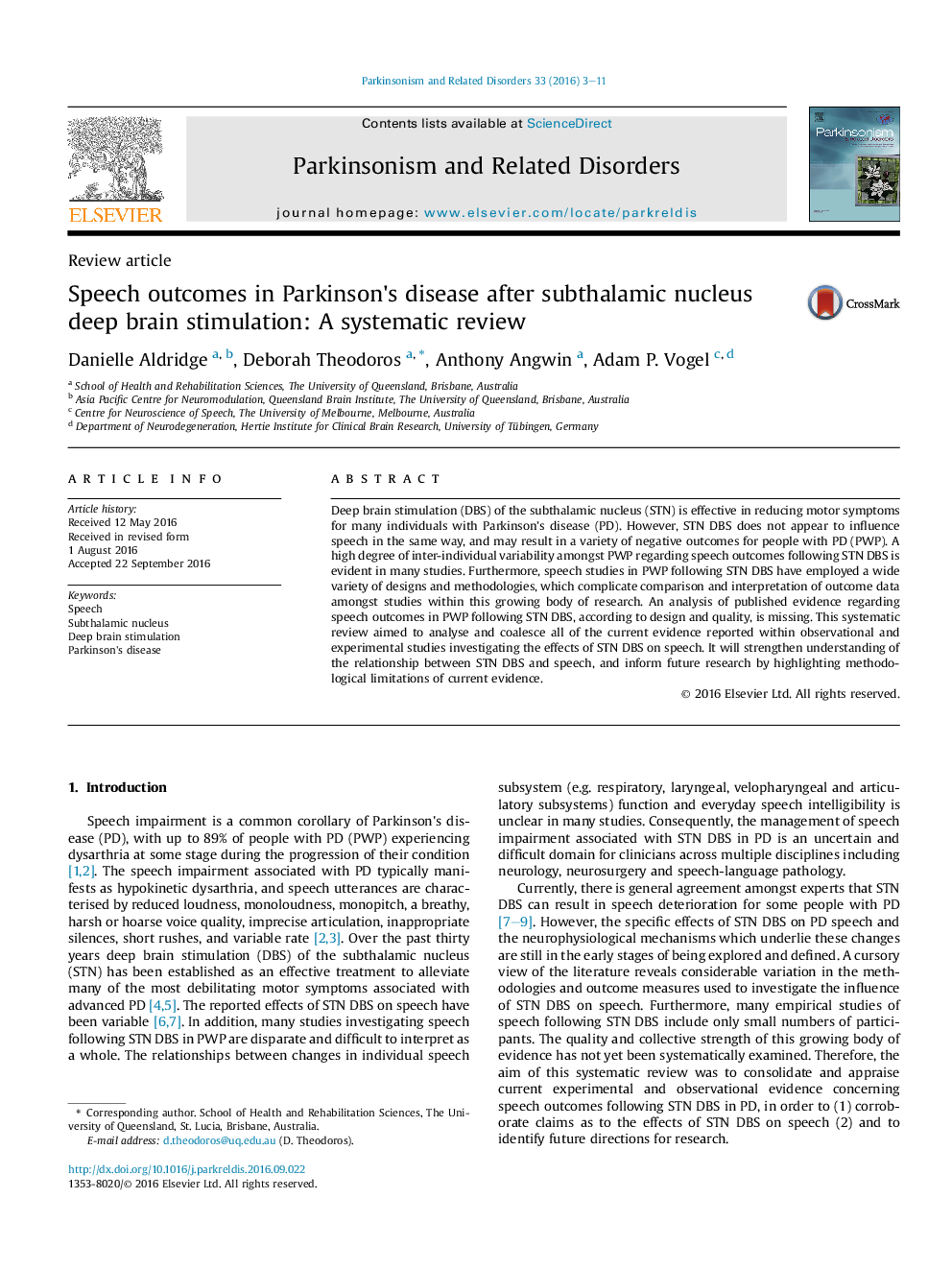| Article ID | Journal | Published Year | Pages | File Type |
|---|---|---|---|---|
| 5503996 | Parkinsonism & Related Disorders | 2016 | 9 Pages |
â¢Investigations of speech after STN DBS in PD are heterogenous in design and quality.â¢Bilateral STN DBS deteriorates PD-speech which does not improve with stimulation off.â¢The combined impact of medication and STN DBS on speech is greater than STN DBS alone.â¢PWP who undergo STN DBS have more highly variable speech change scores over time.â¢Articulation and phonation appear most affected following STN DBS in PD.
Deep brain stimulation (DBS) of the subthalamic nucleus (STN) is effective in reducing motor symptoms for many individuals with Parkinson's disease (PD). However, STN DBS does not appear to influence speech in the same way, and may result in a variety of negative outcomes for people with PD (PWP). A high degree of inter-individual variability amongst PWP regarding speech outcomes following STN DBS is evident in many studies. Furthermore, speech studies in PWP following STN DBS have employed a wide variety of designs and methodologies, which complicate comparison and interpretation of outcome data amongst studies within this growing body of research. An analysis of published evidence regarding speech outcomes in PWP following STN DBS, according to design and quality, is missing. This systematic review aimed to analyse and coalesce all of the current evidence reported within observational and experimental studies investigating the effects of STN DBS on speech. It will strengthen understanding of the relationship between STN DBS and speech, and inform future research by highlighting methodological limitations of current evidence.
